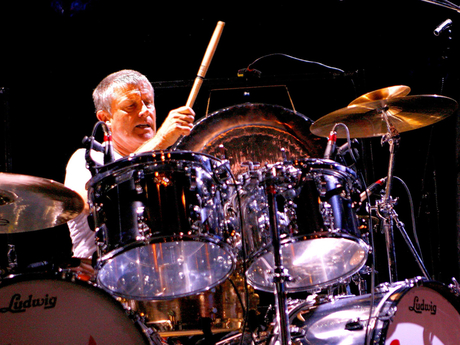
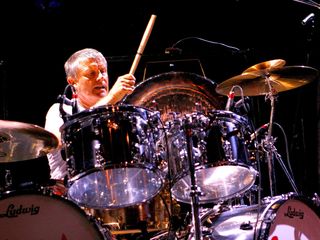
Carl Palmer, on stage in Denver, Colorado, 2009. © Scott D. Smith/Retna Ltd./Corbis
You're one of the fathers of progressive rock. So how do you spend a late September afternoon? If you're drummer Carl Palmer, one-third of the legendary Emerson, Lake & Palmer, you sit in your English garden with a practice pad, working on patterns, keeping your wrists loose and your fingers nimble. Duh!
"It's an absolutely beautiful day," Palmer says. "Coming outside with my pad and my sticks is so much nicer than sitting around and looking at the wall. I need to practice, and the garden is a great spot."
The thought of Palmer, one of the most revered drummers of all time, whose work with ELP, Asia and various solo projects, needing to bone up on his chops seems a little comical at first. But the 61-year-old says that woodshedding is absolutely necessary, especially given the fact that he's playing with two musicians young enough to be his sons.
"I supposed they keep me on my toes a bit," Palmer says of his bandmates, guitarist Paul Bielatowicz, 32, and bassist Simon Fitzpatrick, 25. "But I like to think that I throw enough their way, so we have a good give-and-take."
Audiences in the US will get to see the Carl Palmer Band throw down starting 10 October when the trio hits the road to perform Pictures At An Exhibition, the Muggorsky classic that launched the career of Emerson, Lake & Palmer in 1970. In addition, the band will play a generous helping of ELP gems.
It's a busy time for Palmer, who sat down (in his garden) to speak with MusicRadar about drum soloing, his upcoming tour, playing with younger musicians and his new drum app. In addition, he shared his thoughts on the current state of prog rock.
Get the MusicRadar Newsletter
Want all the hottest music and gear news, reviews, deals, features and more, direct to your inbox? Sign up here.
The short film you recently did, The Solo, is remarkable. You're like a street drummer, exploring all of the sound possibilities in just a snare.
"That's very nice of you to say. During the course of my career, I've gathered various techniques, whether they're from a military level or a jazz level or rock level. They're certain tricks you can do and sounds you can create - not just from a snare drum but a whole drum set - that can be quite expressive.
"I thought this film was a good idea. It's not a tutorial, it's an art film. But I really liked the concept and that I would be able to show a lot of the various things you can do in a very musical way. A lot of these things wouldn't translate to a concert or arena environment - some of the things I'm playing are extremely delicate and quiet in places - but film is the perfect medium to demonstrate them and show them off."
"The solos were my idea. I'd written them and had them up my sleeve for a number of years. But I was approached to do the film by a director named Andrew Cross. He's a fan of mine. He's been to a few of my concerts, and eventually he worked up the courage to approach me about doing something. I'm glad he did, 'cause the film is fantastic."
Examining all of the sonic properties in a drum - have you taken this beyond the snare?
"I've tried to, but snare seems to offer so much. You know, when I was young, my parents didn't buy me a whole kit right off. I started out with a snare and spent six months, maybe a year, just working on that before I got a proper set. Because I was so keen to play, I started experimenting like mad on the snare and found I could do a lot with it. It's become my favorite drum.
"In the past year, I've had the great privilege of working with the Ludwig Drum Company on my own Carl Palmer signature snare drum, which is now available. I've gone from playing a plastic toy drum to having my own snare drum named after me, so I'm very pleased about that." [laughs]
Are there still some aspects of your playing that you want to improve or change?
"Sure. Nothing's ever really, really right. No matter how well you play, you always think that you can do better. As for my own style, I'm always looking at finger technique in conjunction with wrist technique. I've been known to be a fast, nimble player - maybe it's because I drink a lot of coffee. [laughs] I need to look at the first finger on my left hand. The other ones are fine.
"Also, I need to look at my feet. I've been playing double bass drums since way back in '68, but I'm still keen to improve what I do in that area. There are many great players nowadays, and some of them specialize in double bass drum playing. I never liked my own technique. At the moment, I need to get my feet up to speed with my hands. It changes: sometimes the feet are better than the hands, and vice versa. I want to have everything in tune, working together."
You're going to play Pictures At An Exhibition on tour soon. Is that weird with no keyboards?
"No, not really. It's quite fun and challenging, actually. The band is celebrating its 10th anniversary, and this is the third American tour we've done. My guitar player, Paul, is phenomenal, as is the bassist, Simon. Paul's been with me for seven years now, and Simon joined me a year ago.
"These two musicians are the crème de la crème from the institutes and academies that are around today. Simon, for example, came from the Guitar Institute in London, and they have an incredibly high standard. Paul is from Brighton, and he was a teacher at BIM, which is the Brighton Institute of Music. So they're top-notch players."
In addition to Pictures At An Exhibition, you're going to do some ELP classics…
"We'll do Pictures, yes, that's right, and we'll also do Tarkus, which is a composition by ELP. Plus, I'll be playing the title track to the Trilogy album. There'll be a few surprises here and there. I'm about to go into rehearsals next week, so we'll see how everything comes together. It'll be 90-minute set, with some bass features, guitar features and, of course, drum features. It's a varied show.
"As I said, this is the third US tour for us, and it's been going down really well. It's prog rock without vocals, so it's all instrumental, and there's a bit of a metal edge in there. It's very heavy, very hard. But I think we have more musicality than most power trios."
In playing music that you recorded decades ago, what new things are you discovering about it?
"Oh, I'm discovering quite a lot, really. First of all, I had to find out what could and couldn't be played on the guitar, so I had to sit with a specialist, a chap who takes piano music and interprets it for the guitar. That was a big eye opener for me. You know, so much more can be played on the guitar than 10 or 20 years ago. It's funny: Emerson, Lake & Palmer always wanted a lead guitar player, but we could never find one."
Wait a second. With the name you guys had back in the day, you couldn't find a lead guitarist?
"No, we couldn't! [laughs] See, the guitar was behind the bassline in those days. You had Eric Clapton and Jeff Beck and Jimi Hendrix, but when it came to players who had a classical technique, who could play what we needed, there wasn't anybody around. Tapping wasn't popular then, so guitar players really weren't adding to what we had.
"Nowadays, guitarists like Paul in my band are unbelievable. He has a fresh approach and a new energy, so that allows me to come at the music a little differently; it's more raw, I guess. Discovering how to play with a harder edge, a little less jazzy, has been a lot of fun. I'm taking this music and moving it forward, into the next generation."
What's it like to play with musicians who are the same age as you were when you were at the height of ELP fame?
"It's fine. But see, you have to understand, I have to play with younger musicians because that's where the standard is. I need that young fire; it's so important to me. When that excitement translates into the music, it's incredible. I don't know of another power trio that plays classical adaptations as we do, so we're something of a one-off.
"I guess we're doing the same job that ELP used to do. With ELP, we exposed young people to classical music. They heard us play these pieces, and then they went out and bought Mussorgsky's Pictures At An Exhibition by the New York Philharmonic Orchestra, and they heard what that version sounded like. It's great to hand this music down."
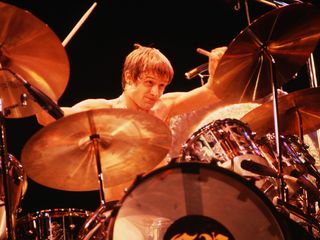
Prog-rock-glory: drumming with ELP in 1978. © Neal Preston/CORBIS
Recently, you came out with your own iTunes mobile app, Play Carl Palmer's Drums. How did that come about?
[laughs] "Oh, it's a bit of fun, really. I had a website a few years ago that had a picture of my drumset, and you could kind of play it on your computer - same kind of deal. A lot of people liked it. But as time went by, it came up to do it again through iTunes, so we did. Again, it's fun, a bit of a gimmick. It's certainly nothing serious."
Beyond your Ludwig signature snare, what kind of drums are you playing these days?
"Ludwig, as well. I've gone back to Ludwig and have been with them for probably seven or eight years now. They were my first sponsors, back in 1971, and I stayed with them for about eight years until we had a bit of an argument. Anyway, I'm with them again. When we had our first conversations about my coming back, I told them I wanted a stainless steel drum set. I didn't hear from them for seven months or so, and then one day I got a call from them telling me they'd built such a kit to celebrate their 100th anniversary and my coming back to the company. So that's what I play. I have two sets, one here in the UK and one in America."
"I also have two Ludwig Vistalite sets, both in blue, one in Japan and the other in Rome. But I would say that my main sets are the ones in the UK and in America."
Being that you're one of the pioneers of progressive rock, what do you think of bands such as Dream Theater and Porcupine Tree?
"I think there's a lot of great musicians out there. A lot of obscure bands are happening on the pub circuit. There's a band called IQ and one called After Autumn, so there's some things going on.
"Dream Theater have been around for a while - actually, we had them on an Emerson, Lake & Palmer tour - so I don't think of them as new. Porcupine Tree have broken through, they've got it, so that's remarkable to see. The market is quite tough for progressive music. Oh, and I loved Spock's Beard with Neal Morse - they were quite good."
Emerson, Lake & Palmer were famous - infamous, in fact - for their onstage excesses and theatrics. So were you jealous when Rick Wakeman did that whole "Henry the VIII on ice" thing?
[laughs] "I wasn't jealous of the ice, but I did like the wooden horses that he had people skating around in. What he did was more of a family novelty show, whereas Emerson, Lake & Palmer were more about adding effects to help the music. Jumping around on horses, that would have been a little too close to the bone." [laughs]
Joe is a freelance journalist who has, over the past few decades, interviewed hundreds of guitarists for Guitar World, Guitar Player, MusicRadar and Classic Rock. He is also a former editor of Guitar World, contributing writer for Guitar Aficionado and VP of A&R for Island Records. He’s an enthusiastic guitarist, but he’s nowhere near the likes of the people he interviews. Surprisingly, his skills are more suited to the drums. If you need a drummer for your Beatles tribute band, look him up.
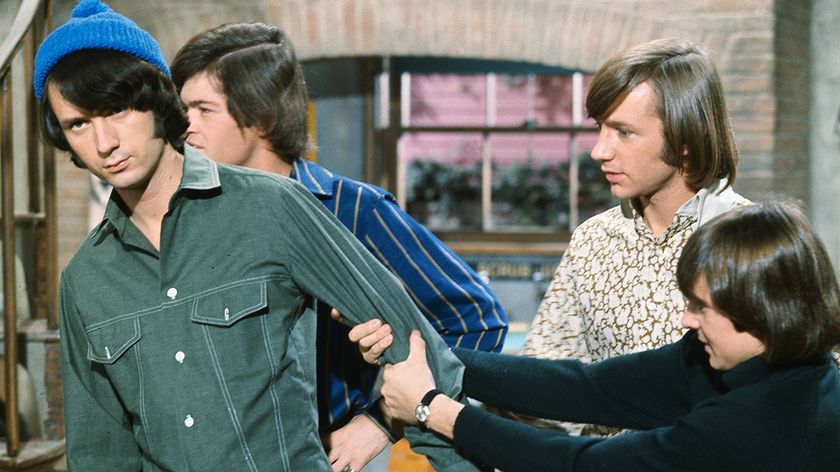
"They said, ‘Thank you, but no thank you - it’s not a Monkees song.’ He said, ‘Wait a minute, I am one of the Monkees! What are you talking about?’": Micky Dolenz explains Mike Nesmith's "frustration" at being in The Monkees
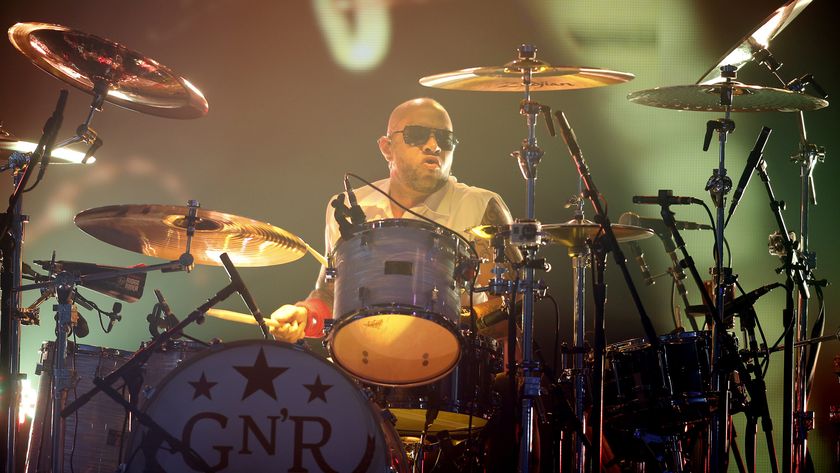
“There’s nights where I think, ‘If we don’t get to Paradise City soon I’m going to pass out!’”: How drummer Frank Ferrer powered Guns N’ Roses for 19 years

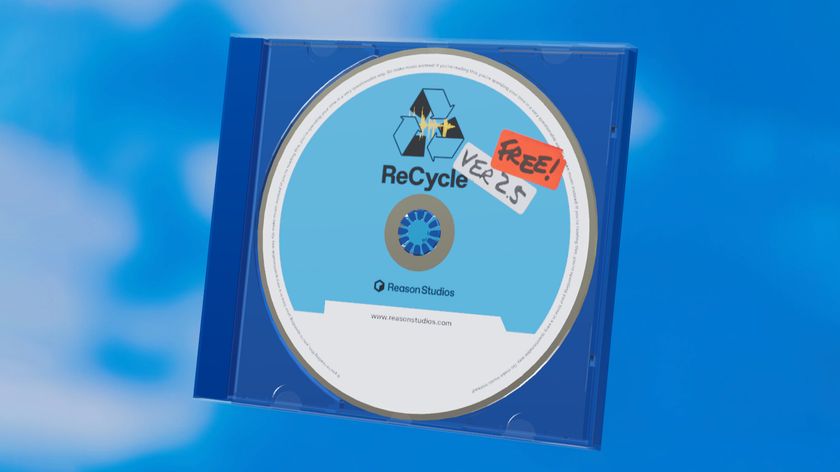
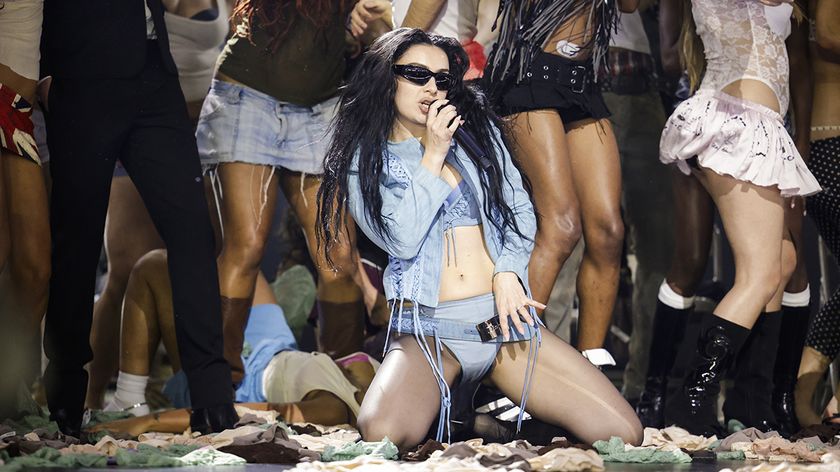
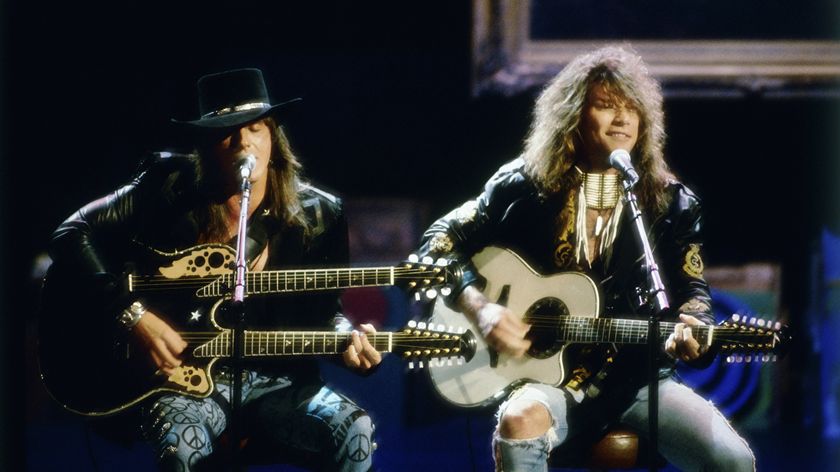
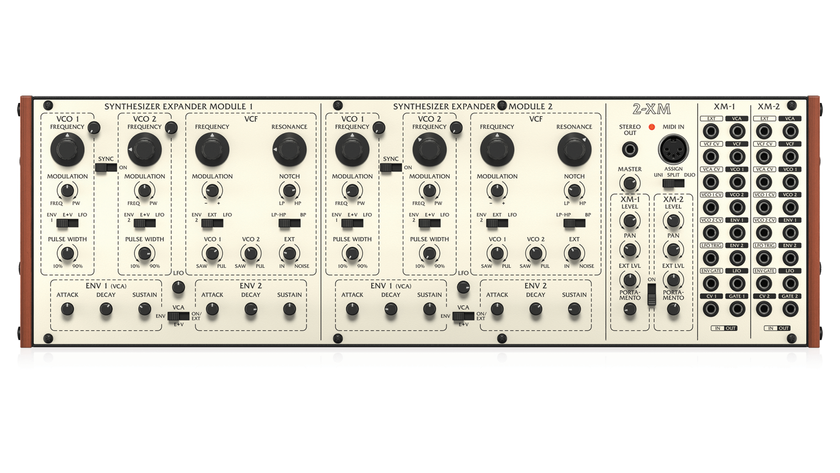
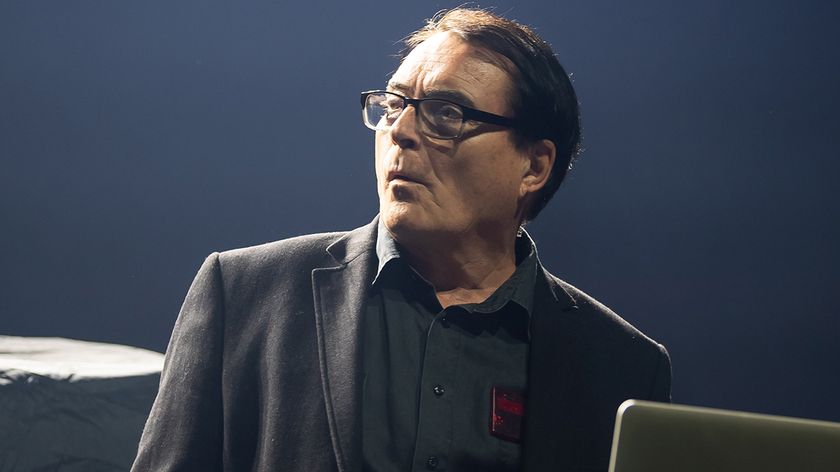
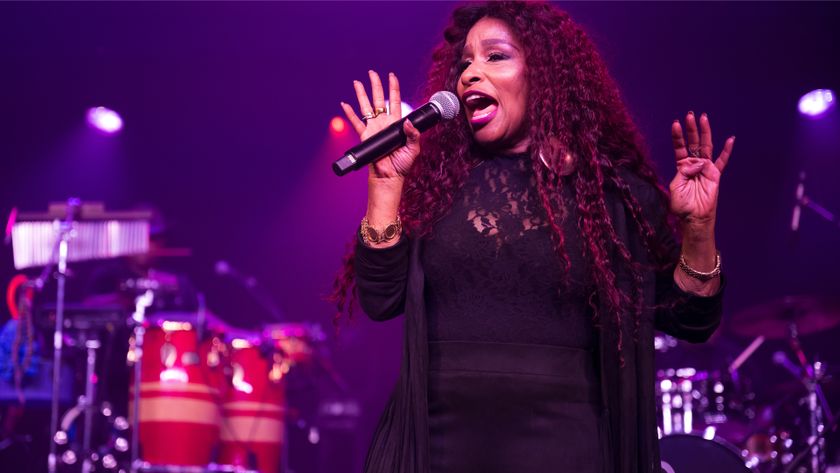
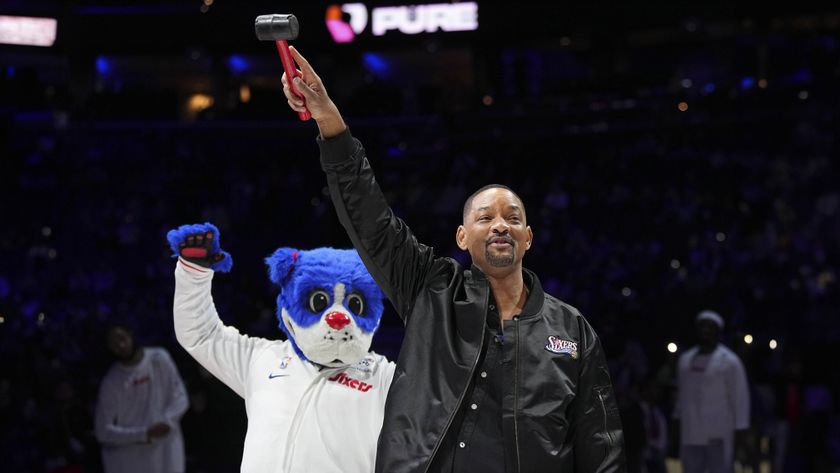


![Chris Hayes [left] wears a purple checked shirt and plays his 1957 Stratocaster in the studio; Michael J. Fox tears it up onstage as Marty McFly in the 1985 blockbuster Back To The Future.](https://cdn.mos.cms.futurecdn.net/nWZUSbFAwA6EqQdruLmXXh-840-80.jpg)